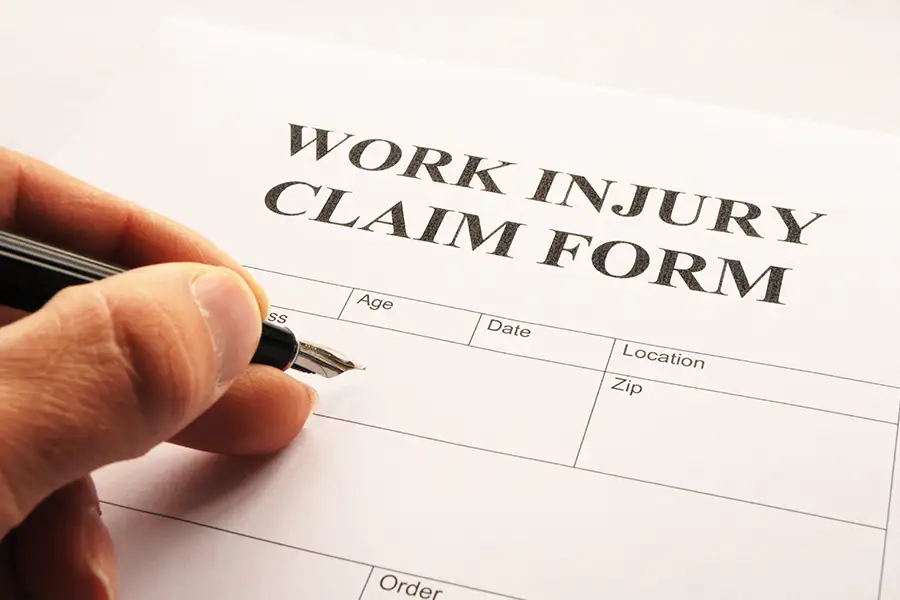
Colorado Workers’ Compensation for Injured Roofers
Learn about your right to compensation after a roofing injury at work in Denver
The roofing industry in Denver has been growing in recent years, offering an abundance of job opportunities due to the state’s thriving construction market. Despite this positive trend, working in this field comes with significant risks.
Roofers in Colorado face a high probability of severe injuries and fatalities, primarily due to the hazardous nature of their work, which often involves working at heights and dealing with unpredictable weather conditions.
If you’ve suffered a serious roofing injury in Denver, you may be unsure of your rights and the steps to take to file a workers’ compensation claim. This article aims to shed light on the crucial aspect of workers’ rights within this high-risk industry, detailing the protections and benefits available to injured roofers in the event of a workplace injury or accident.
If you still have questions after reading this article or would like help filing a claim, reach out to the experienced Denver work injury attorneys at The Babcock Law Firm to schedule a free consultation.
The danger of roofing fatalities in Colorado
According to the U.S. Bureau of Labor Statistics (BLS), 96 Colorado workers were fatally injured on the job in 2021, a 23% increase from the previous year. Of those workers, 25 worked in the construction industry, which includes roofing. This makes the construction industry the second-most dangerous industry in the state for work fatalities after transportation, trade and utilities.
Why are roofing jobs so dangerous?
The BLS reports that some of the top causes of death in all industries in Colorado in 2021 were transportation accidents and slips, trips and falls, collectively accounting for 42 deaths, or about 44% of workplace fatalities.
When you consider that roofing often entails working with and among trucks, forklifts and other transportation vehicles and also has a high likelihood of slip-and-fall injuries from great heights, it’s no wonder that roofing is among the most dangerous occupations in the state.
What injuries can you get from falling through a roof?
Roofers are exposed to various risks on the job, leading to a range of common injuries. These injuries not only affect their health but can also result in significant time away from work. Some of the most frequent injuries roofers face include:
- Fall-related injuries. Falls can occur from ladders, roofs or scaffolding and result in severe injuries such as broken bones, spinal injuries, traumatic brain injuries and even fatalities.
- Burns. Roofing often involves working with hot materials, like tar, which can lead to burn injuries. These burns can be both thermal (from heat) or chemical.
- Electrocution injuries. Roofers are at risk of electrocution, especially when working near power lines or using electrical equipment.
- Repetitive stress injuries. Due to the nature of roofing work, roofers are at risk of injuries like carpal tunnel syndrome caused by repetitive movements with hammers and other tools.
- Musculoskeletal injuries. The physical demands of roofing, which include lifting, bending and kneeling, often lead to musculoskeletal injuries. These can include strains, sprains and back injuries.
- Weather-related illnesses. Working outdoors puts roofers at risk of illnesses like frostbite and hypothermia in the winter and heat-related illnesses like heat exhaustion or heat stroke in the summer, especially if they’re not properly hydrated or shaded.
- Cuts and lacerations. Roofers frequently use sharp tools like knives, saws, and nail guns, which can cause cuts or puncture wounds. These injuries can range from minor cuts to severe lacerations requiring medical attention.
To mitigate these risks, it is crucial for roofers and their employers to adhere strictly to safety protocols and use proper protective equipment. Additionally, understanding workers’ compensation rights is vital when an injury does occur.
Does Colorado Workers’ Compensation Cover All Injuries?
Learn which injuries, illness and diseases are and aren’t covered under workers’ comp in Colorado.
Solar company fined more than $170,000 for endangering Colorado roofers
In June 2023, Ion Solar LLC, a Utah-based solar provider, was cited for serious safety violations after allowing employees to work on an icy, snow-covered roof in Johnstown, Colorado, without proper fall protection in late December 2022. This violation was discovered following an Occupational Safety and Health Administration (OSHA) inspection initiated by a complaint about workers’ safety.
The company, which has a history of workplace safety issues, was cited for not only neglecting fall protection but also for failing to provide ground employees with hard hats. The inspection revealed that a company manager did not enforce the safety program for a one-day job, leading to a proposed penalty of $170,992 by OSHA. Ion Solar has a history of 12 previous OSHA violations across multiple states, dating back to 2018.
Does workers’ comp pay for lost wages in Colorado?
Yes, Colorado workers’ compensation does provide for lost wages, along with other benefits, after a work-related injury, illness or disease.
Most employers in Colorado with at least 1 employee are required to carry workers’ compensation insurance for their workers. To qualify for benefits under workers’ comp, you must be an employee (not an independent contractor), and your injury, illness or disease must be directly caused by your job duties or work environment.
Here’s a brief summary of the key benefits under Colorado’s workers’ compensation:
- Medical benefits. Workers’ compensation covers all necessary medical treatment for a work-related injury or illness. This includes hospital visits, doctor appointments, medications, surgeries and any rehabilitative therapy required.
- Lost wage benefits. If an injury or illness prevents a worker from doing their job, workers’ compensation provides partial wage replacement. These benefits are typically two-thirds of the worker’s average weekly wage, subject to minimum and maximum limits set by the state.
- Permanent disability benefits. If the work-related injury or illness results in a permanent impairment, the worker may be entitled to additional benefits. These are determined based on the type and severity of the disability.
- Death benefits. In the unfortunate event of a work-related death, workers’ compensation provides benefits to the deceased worker’s dependents. This typically includes a portion of the worker’s wages and funeral expenses.
These workers’ compensation benefits are designed to provide essential support to injured workers and their families, helping them manage financial strains during recovery or in the aftermath of a tragic loss.
Did you know?
Because workers’ compensation is a form of no-fault insurance, workers typically qualify for benefits even if the accident that caused their injury was their fault.
How long do I have to report an injury at work in Colorado?
In Colorado, you should report a work-related injury to your employer as soon as possible, but no later than 10 working days after the injury occurs. Failing to report the injury within this timeframe can result in a denial of your workers’ compensation claim.
If you miss the 10-day deadline, you should still report the injury as soon as you can, as extensions may be possible depending on the circumstances. A work injury attorney can explain your rights and help you take the necessary steps to increase the chance of a successful claim.
How to File a Work Injury Claim
Learn the steps you need to take to file a workers’ comp claim after an injury in Colorado.
Injured in a roofing accident in Denver? The Babcock Law Firm can help.
If you or a loved one has suffered a serious injury or been killed in a roofing accident at work in Colorado, contact the knowledgeable Denver work injury attorneys at The Babcock Law Firm for help with your claim. We understand the stress of trying to navigate the workers’ compensation system while recovering from an injury, and it’s our goal to make the process as smooth and painless as possible.
Our attorneys can help file your claim and negotiate with the insurance company to ensure you get maximum compensation for your injury.
Reach out today to schedule a free, no-obligation consultation to learn more about your rights.
References
Fatal occupational injuries in Colorado : U.S. Bureau of Labor Statistics. (n.d.). www.bls.gov. https://www.bls.gov/iif/state-data/fatal-occupational-injuries-in-colorado-2021.htm



